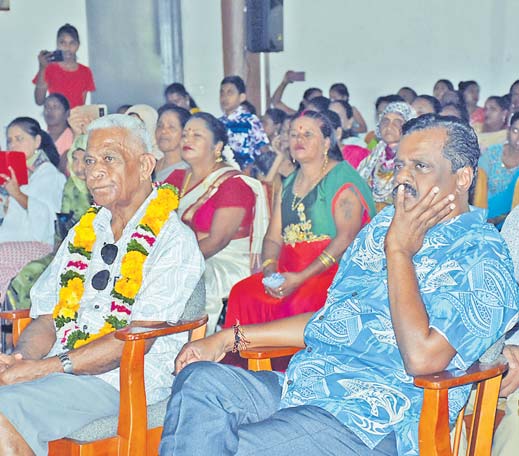Yesterday was an important date for Fiji.
There are moments in time that we must remember, to ensure the memories of those involved, and the lessons of history are placed on a very high pedestal.
Government minister Parveen Kumar said something on the eve of yesterday, back in 2018, that touched on the history of the girmitiya.
Speaking at the 139th Girmit Day celebration in Nadi that year, he said many historians had documented the arrival of the girmitiya but little was still known about their sacrifice and suffering.
It is important, he said, that Girmit Day was used to get a better sense of the history, background and context of why and how girmitiya came to Fiji.
He said, in 1874, when Fiji was ceded to Great Britain and became a Crown colony on October 10, 1874, one of the great challenges was to find labour to sustain the economy.
This was the truth behind the arrival of the indentured labourers, he said, and we must acknowledge their work and contribution to establishing an economy for our beautiful country.
Perhaps we need a jolt to appreciate the importance of history, and what it means to us as a nation.
Yesterday we had an opportunity to reflect on history and to appreciate the role history has in shaping our future.
We live in a country that was shaped through hard work, through blood, sweat and tears.
Tightly woven in there is the history of our girmitiya.
On May 14, 1879 the first group of indentured labourers arrived from India.
We have grown as a nation, and as a nation we must be appreciative of the place of the girmitiya in our history.
We can only ponder on the scenarios that existed at the time of the journey across the seas to Fiji.
There would have been a sense of uncertainty, frustration maybe, fear and shock when the first lot of indentured labourers sailed away from their motherland.
They were headed for a new beginning. Life would have been very different from what they were accustomed to back home.
The weather may have been the same for some of them, and perhaps different for some.
That was something they had to contend with, then there was the food, and an environment they weren’t familiar with.
In the end though, they survived, and adapted to their new life.
Today we acknowledge their sacrifice, hard work, and contribution to the development of a young nation.
History can reinforce our appreciation of who we are as a people, and as a nation.
As we move forward, we must get our bearings through history, reflect on what happened, and take care never to repeat mistakes of the past.
The Girmit era should invoke in us a sense of appreciation of the early years of progress as a nation.
We remember the great sacrifices made by every indentured labourer.
History teaches us values.
In his speech on September 17, 2002, former US President George Bush said something that probably rings true for us.
He told Americans: “Our history is not a story of perfection. It’s a story of imperfect people working toward great ideals.
“This flawed nation is also a really good nation, and the principles we hold are the hope of all mankind. When children are given the real history of America, they will also learn to love America.
“Ignorance of American history and civics weakens our sense of citizenship. To be an American is not just a matter of blood or birth; we are bound by ideals, and our children must know those ideals.”
Perhaps we may consider them relevant and a reminder for us to remember our history.
Many people had an impact on the birth of our nation.
They left an indelible impression on our nation’s history.
We remember the girmitiya!






